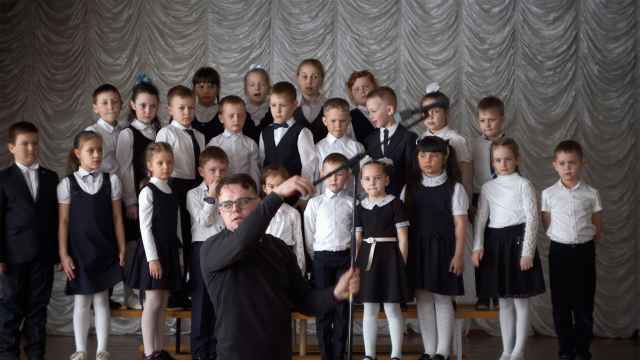While nobody wants to go back to the Cold War, those of us who are old enough to remember it know that while tensions between Moscow and Washington ran high, they never exploded into outright conflict. If the U.S. and Russia could limit conflict during the Cold War, they can surely do so again now.
The need for Russia and the U.S. to do this in Ukraine is urgent. The possibility of civil war between the pro-Russian east and the pro-Europe west is already real. Among other victims, if this occurred, would be the Ukrainian pipeline system through which much of the gas Russia exports to Europe flows.
In a worst-case scenario, fighting could lead to massive refugee flows from Ukraine to all neighboring countries, as has happened in Syria. And while a civil war in Ukraine could break out all too easily, settling it could prove extremely difficult. In the meantime, both Russian and Western economies would suffer, and Russia-U.S. relations could deteriorate to the depths of Cold War-era levels of hostility.
This would not be in the interests of Russia, the U.S., Europe, or either Russian- or Western-oriented communities in Ukraine. But are they willing and able to prevent the situation in Ukraine from deteriorating further and thereby harming everyone's interests?
Russia and the West have certain basic interests in Ukraine: Russia does not want Ukraine to join NATO, and the U.S. and Europe do not want any more of Ukraine to be annexed by Russia. A solution that both sides should be able to accept, then, is that Ukraine becomes a neutral state, joining neither NATO nor the Russian-led Collective Security Treaty Organization, and that it is not annexed any further by Russia.
Yet even if Washington and Moscow could agree on the desirability of such a solution, their ability to implement it would depend heavily on the willingness of the Russian- and Western-oriented communities in Ukraine to accept it. And this, in turn, would depend on Washington and Moscow's ability to persuade these communities that it is in their best interests to do so.
The ideal solution would be one such as Moscow and Washington, alongside London and Paris, reached in 1955 over Austria. Despite Cold War tensions between them, the four powers that occupied that country at the end of World War II withdrew their forces, and Austria declared its neutrality.
In contrast to Ukraine, of course, Austria was both a smaller and more ethnically cohesive state. This solution might work, though, if the Russian- and Western-oriented communities in Ukraine could be reassured that their worst fears of being absorbed into the other side's favored sphere of influence will not be realized. Both populations would also have to feel certain that neither Russia nor the West would support one side against the other within Ukraine.
If, however, Ukraine does descend into a fierce civil war, the example of Bosnia-Herzegovina in the 1990s shows that the presence of peacekeeping forces can help foster peace, if not reconciliation, between opposing communities. But given how much larger Ukraine is both in terms of territory and population, achieving and implementing something akin to the Dayton Accords that settled the conflict in Bosnia-Herzegovina will be far more difficult and costly in Ukraine.
Indeed, just the prospect of such an extreme solution should motivate the U.S., Europe, and Russia to make sure that it does not come to this. It would behove Russia, the U.S., Europe, and Ukraine to try to transform Ukraine into another Austria now, so that we are not faced with the far more difficult task of attempting to transform it into another Bosnia-Herzegovina later.
Mark N. Katz is a professor of government and politics at George Mason University.
A Message from The Moscow Times:
Dear readers,
We are facing unprecedented challenges. Russia's Prosecutor General's Office has designated The Moscow Times as an "undesirable" organization, criminalizing our work and putting our staff at risk of prosecution. This follows our earlier unjust labeling as a "foreign agent."
These actions are direct attempts to silence independent journalism in Russia. The authorities claim our work "discredits the decisions of the Russian leadership." We see things differently: we strive to provide accurate, unbiased reporting on Russia.
We, the journalists of The Moscow Times, refuse to be silenced. But to continue our work, we need your help.
Your support, no matter how small, makes a world of difference. If you can, please support us monthly starting from just $2. It's quick to set up, and every contribution makes a significant impact.
By supporting The Moscow Times, you're defending open, independent journalism in the face of repression. Thank you for standing with us.
Remind me later.






